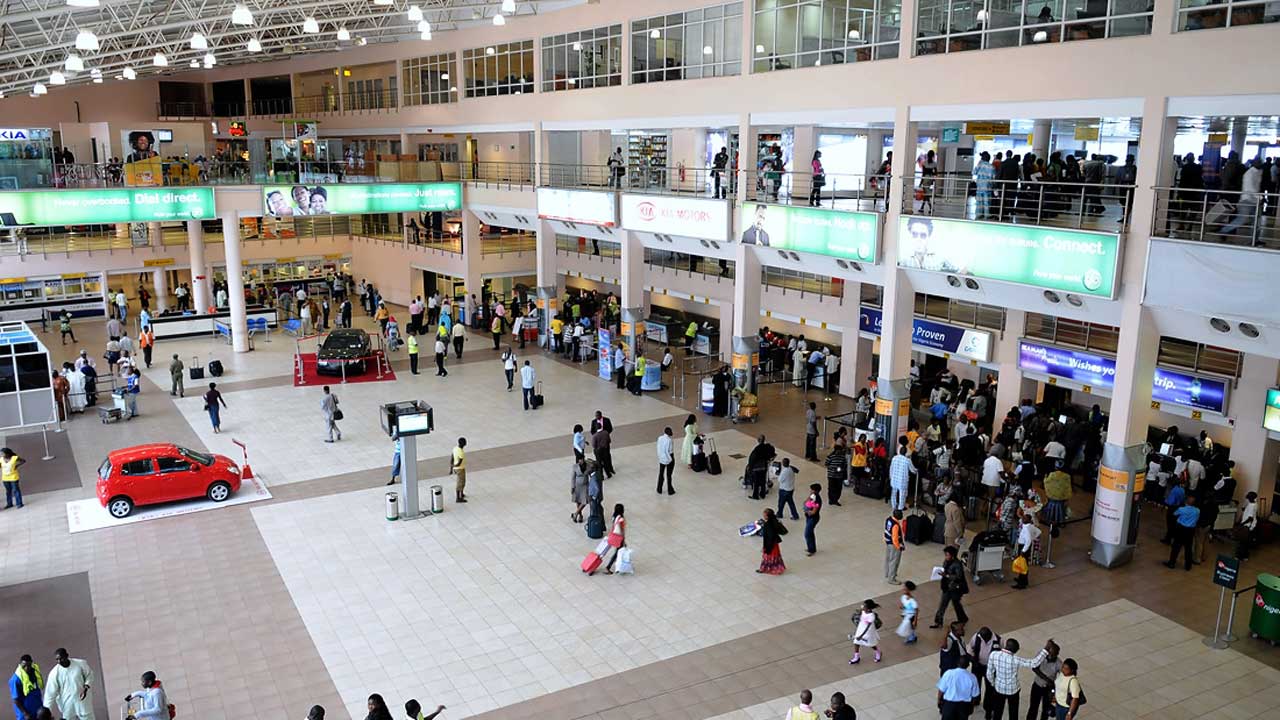- Airlines Oppose Abuja Airport Closure
The Federal Government on Thursday explained to aviation stakeholders why the Nnamdi Azikiwe International Airport, Abuja must be shut for six weeks beginning from March 8 in order to carry out repairs on its runway and taxi ways.
But despite the explanation made by the Minister of State for Aviation, Senator Hadi Sirika, at a stakeholders’ meeting, the Airline Operators of Nigeria, an umbrella body for carriers in the country, opposed the move by the government to shut the NAIA.
The Federal Government had earlier stated that during the closure of the Abuja airport, passenger traffic and flight activities would be diverted to the Kaduna International Airport for the six-week period, a development that would lead to the screening of air travellers twice, in Abuja and Kaduna.
In a bid to get the inputs of stakeholders, the Federal Government convened an industry-wide meeting on Thursday, which had in attendance different security agencies’ officials, representatives of foreign embassies in Nigeria, international airline operators and their domestic counterparts, legislators, the governments of Kaduna, Kwara and Niger states, as well as other participants.
However, in its submission after an elaborate presentation by the minister, the AON declared that it was in support of the rehabilitation of the NAIA runway, but stressed that the facility should be repaired at night without necessarily shutting down the airport completely for six weeks.
Speaking on behalf of the airline operators, the Chairman, AON, Capt. Nogie Meggison, argued that the Kaduna airport might not be ready to carry the volume of traffic that hits Abuja on a daily basis, among other issues.
He said, “We are in total support of the rehabilitation of the Abuja runway, which is long overdue and is becoming a safety issue that needs to be addressed as soon as possible. But the AON, on the other side, is of the view that shutting the runway is not the best for now.
“We believe that the runway can be repaired at night, like what is done in other countries. A case study is the Gatwick Airport, which handles 400,000 passengers annually, far higher than what Abuja handles. Or alternatively, the runway in Abuja is 3,900 metres and if you split it into two, you will get roughly 2,000 metres.”
Meggison added, “With 2,000 metres of runway, they can fix one side for three or four weeks and come back to the other side. With 2,000 metres of runway, a 737 aircraft can comfortably get into it for a one-hour flight; and a DRJ, Dash-8 and domestic carriers can come in. International carriers can go to Lagos and Kano, and we distribute for them, like what is done anywhere in the world.”
“We also believe that Kaduna may not be too ready for this and for the volume of passengers that will be coming through that airport.”
In response to the AON’s position, the minister said the government would have worked at night on the Abuja airport if the level of dilapidation of the facility was just on the surface of the runway and taxi ways.
Sirika said, “But right now, all the four-level structures on that runway are completely gone. It is completely dilapidated. What was done in Gatwick was done for six months, but we are doing six weeks of closure to be able to attend to the critical parts of that runway.
“This working at night without disruption of flights is what we have been doing for 14 years on that runway and we have been achieving the same result. To stop spending billions and getting the same result, we engaged a wide range of engineers, who advised that it be closed and a complete and thorough job be done on the runway.”
The minister explained that the lifespan of the Abuja runway had been exceeded by 14 years without adequate maintenance as opposed to that of the Gatwick Airport, which receives constant maintenance.
He stressed that the Abuja runway might be forced to shut down on its own, as was the case of the Port Harcourt airport runway some years ago, a development that grounded flight activities in the state for two and half years.
On logistics being put in place for travellers to use the Kaduna airport, Sirika said N1.1bn had been approved by the Federal Government for its rehabilitation and that work on the facility would be completed before March 8.
He said Abuja passengers would board free buses to and from the Kaduna airport, adding that security would be provided by aviation security personnel, police, Ministry of Defence, Nigeria Security and Civil Defence Corps and the Kaduna State Government.
Sirika explained that military and police officers would be stationed on the Abuja-Kaduna Expressway during the six-week period, and that there would be train and helicopter services for passengers who could afford them.
On claims that the United Kingdom High Commission in Nigeria would close its services during the period, the minister stated this was a lie, adding that he had met with the personnel of the high commission and they had refuted the allegation.

 Billionaire Watch3 weeks ago
Billionaire Watch3 weeks ago
 Startups4 weeks ago
Startups4 weeks ago
 News4 weeks ago
News4 weeks ago
 News4 weeks ago
News4 weeks ago
 Bitcoin4 weeks ago
Bitcoin4 weeks ago
 Naira4 weeks ago
Naira4 weeks ago
 Forex3 weeks ago
Forex3 weeks ago
 Treasury Bills4 weeks ago
Treasury Bills4 weeks ago

























